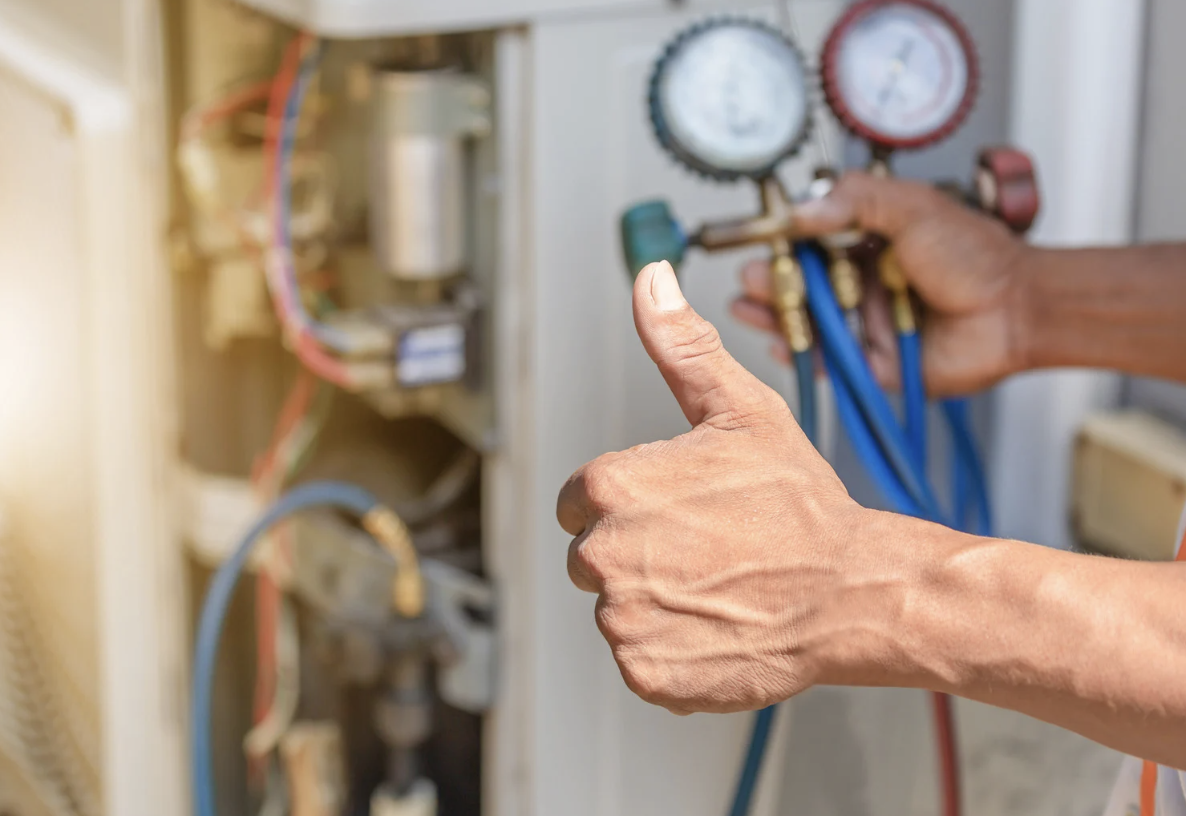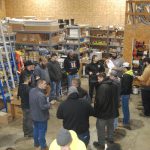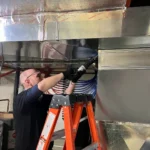Investing in a quality HVAC (Heating, Ventilation, and Air Conditioning) system is a significant decision for any homeowner. A well-functioning HVAC system not only keeps your indoor environment comfortable throughout the year but also plays a crucial role in maintaining good air quality and energy efficiency. However, like any mechanical system, HVAC units require regular maintenance and care to ensure their longevity. In this comprehensive guide, we will explore practical tips and strategies to extend the life of your HVAC system, helping you save money and improve comfort in your home.
Understanding the Importance of HVAC Maintenance
HVAC systems are complex machines that require various components to work in harmony. Regular maintenance is vital for several reasons:
- Efficiency: A well-maintained HVAC system operates more efficiently, leading to lower energy bills and reduced environmental impact.
- Longevity: Routine maintenance can significantly extend the lifespan of your HVAC system, preventing premature breakdowns and costly repairs.
- Air Quality: Regular maintenance ensures that your system is clean and functioning correctly, helping to maintain good indoor air quality by reducing dust, allergens, and pollutants.
- Warranty Compliance: Many HVAC warranties require regular maintenance to remain valid. Neglecting this can result in the loss of warranty coverage.
Signs That Your HVAC System Needs Attention
Before delving into maintenance tips, it’s essential to recognize the signs that your HVAC system may need attention. Regularly monitoring for these indicators can help you address issues before they escalate:
- Inconsistent Temperatures: If certain rooms are warmer or cooler than others, it may indicate an issue with your HVAC system.
- Unusual Noises: Grinding, rattling, or high-pitched sounds may signal mechanical issues that require professional attention.
- Increased Energy Bills: A sudden spike in energy costs without a change in usage can indicate that your HVAC system is working harder than it should.
- Frequent Cycling: If your system turns on and off frequently, it could indicate a problem with the thermostat or an underlying issue.
- Poor Air Quality: If you notice an increase in dust or allergens in your home, it may indicate that your HVAC system needs cleaning or maintenance.
HVAC Maintenance Tips to Extend Lifespan
To maximize the lifespan of your HVAC system, consider implementing the following maintenance tips:
1. Schedule Regular Professional Inspections
Regular inspections by a qualified HVAC technician are critical for maintaining system performance. Most experts recommend scheduling professional maintenance at least once a year for both heating and cooling systems. During these inspections, the technician will:
- Clean and inspect major components: This includes coils, fans, and blowers, which can accumulate dust and dirt over time.
- Check refrigerant levels: Low refrigerant levels can indicate leaks and affect system efficiency.
- Test and calibrate the thermostat: Ensuring accurate temperature control helps maintain comfort levels.
- Inspect ductwork: Checking for leaks or blockages can improve airflow and system efficiency.
- Clean or replace filters as needed: This is essential for maintaining air quality and preventing strain on the system.
These preventive measures can identify potential issues before they become significant problems, saving you money on repairs and extending the life of your system.
2. Change Air Filters Regularly
Air filters play a crucial role in the efficiency of your HVAC system. Clogged filters restrict airflow, forcing the system to work harder to maintain desired temperatures. This increased strain can lead to premature wear and tear. To avoid this, consider the following:
- Frequency of Change: Check your filters every month, and replace or clean them every 1 to 3 months, depending on usage and filter type. If you have pets or allergies, you may need to change filters more frequently.
- Choosing the Right Filter: Select filters with a MERV (Minimum Efficiency Reporting Value) rating suitable for your home’s needs. Higher-rated filters capture more allergens and particles but may restrict airflow if not changed regularly.
- Consider High-Efficiency Filters: Invest in high-efficiency particulate air (HEPA) filters, which can significantly improve indoor air quality and reduce allergens.
3. Keep the Area Around the Outdoor Unit Clear
The outdoor unit of your HVAC system requires ample space to function correctly. Overgrown vegetation, debris, and obstructions can hinder airflow and impact efficiency. To maintain your outdoor unit:
- Trim Vegetation: Ensure that shrubs, plants, and trees are kept at least 2 feet away from the unit to allow for proper airflow.
- Clear Debris: Regularly remove leaves, dirt, and other debris from the unit. This can help prevent clogs and maintain efficiency.
- Check Drainage: Ensure that the condensate drain is clear of obstructions, allowing for proper water drainage and preventing water buildup, which can lead to mold growth.
4. Maintain Proper Insulation
Proper insulation is essential for maintaining a comfortable indoor temperature and preventing your HVAC system from working harder than necessary. Consider the following:
- Seal Ducts: Inspect your ductwork for leaks and seal any gaps with duct tape or mastic sealant. Leaky ducts can lead to energy loss and uneven heating and cooling throughout your home.
- Insulate Ducts: Insulating ductwork can help prevent energy loss, especially in unconditioned spaces like attics or basements.
- Insulate Attics and Walls: Ensure that your home is adequately insulated, particularly in attics and exterior walls. This can reduce the load on your HVAC system and improve energy efficiency.
5. Monitor Thermostat Settings
Your thermostat plays a vital role in regulating your HVAC system’s operation. To ensure optimal performance:
- Use a Programmable Thermostat: Consider investing in a programmable thermostat that allows you to set different temperatures for various times of the day. This can lead to energy savings by adjusting the temperature when you’re not home.
- Check Calibration: Ensure that your thermostat is accurately calibrated. An improperly calibrated thermostat can lead to temperature inconsistencies and unnecessary system cycling.
- Upgrade to a Smart Thermostat: Smart thermostats offer advanced features, such as remote access and learning capabilities, allowing you to optimize HVAC performance based on your habits.
6. Optimize System Settings
Maximizing the efficiency of your HVAC system can help extend its lifespan. Here are some settings and practices to consider:
- Adjust Temperature Settings: Setting your thermostat to a few degrees higher in the summer and lower in the winter can reduce the workload on your system.
- Use Ceiling Fans: Ceiling fans can help circulate air and reduce the demand on your HVAC system. In the summer, set fans to rotate counterclockwise to create a cooling breeze; in the winter, reverse the direction to distribute warm air throughout the room.
- Close Vents in Unused Rooms: If you have rooms that are rarely used, consider closing vents in those areas. This can help redirect airflow to more frequently occupied spaces, improving overall comfort and reducing energy waste.
7. Invest in Upgrades
If your HVAC system is outdated or inefficient, consider investing in upgrades that can improve performance and extend its lifespan:
- High-Efficiency Units: If your system is over 10 years old, it may be time to consider a high-efficiency replacement. Modern units are designed to operate more efficiently, leading to energy savings and reduced wear and tear.
- Zoning Systems: Implementing a zoning system can optimize temperature control and efficiency in different areas of your home. This can help extend the life of your HVAC system by reducing overall usage and wear on individual components.
- Regular Duct Cleaning: If you haven’t cleaned your ducts in a while, consider scheduling a professional duct cleaning. This can improve airflow and indoor air quality, enhancing the efficiency of your system.
8. Be Mindful of Temperature Extremes
Extreme temperatures can put additional strain on your HVAC system. To protect it during extreme weather:
- Use Window Coverings: In hot weather, close curtains or blinds during the day to reduce heat gain. In winter, open them during the day to let sunlight warm your home naturally.
- Limit Heat-Generating Activities: Avoid using heat-generating appliances (like ovens or dryers) during the hottest part of the day. This can help reduce the load on your HVAC system.
- Stay on Top of Seasonal Maintenance: Schedule maintenance before the start of each heating and cooling season to ensure your system is prepared for the demands of extreme weather conditions.
9. Respond to Problems Promptly
Timely intervention can prevent minor issues from escalating into major repairs:
- Listen for Unusual Noises: If you notice strange noises coming from your HVAC system, don’t ignore them. These sounds can indicate mechanical issues that need immediate attention.
- Address Performance Issues: If you notice a drop in performance, such as reduced airflow or inconsistent temperatures, schedule a professional inspection as soon as possible.
- Keep an Eye on Age: If your HVAC system is nearing the end of its lifespan (generally around 15-20 years), start planning for a replacement. Investing in a new system can save you money in the long run by improving efficiency and reducing repair costs.
10. Educate Yourself About Your HVAC System
Understanding how your HVAC system works can help you make informed decisions about maintenance and repairs:
- Read the Manual: Familiarize yourself with the owner’s manual for your specific HVAC system. This will provide valuable information about recommended maintenance practices and troubleshooting tips.
- Stay Informed: Keep up to date with HVAC technology and trends. This can help you identify potential upgrades or improvements for your system.
- Join Online Forums: Participate in online discussions or forums about HVAC maintenance. Engaging with other homeowners can provide valuable insights and tips for keeping your system in top shape.
Extending the life of your HVAC system is essential for maintaining a comfortable and energy-efficient home. By implementing these maintenance tips and being proactive about care, you can ensure that your HVAC system operates at its best for years to come. Remember, regular professional inspections and timely interventions are key to preventing costly repairs and prolonging the lifespan of your HVAC system. With proper care, you can enjoy the comfort of your home while saving money on energy bills and repairs.







